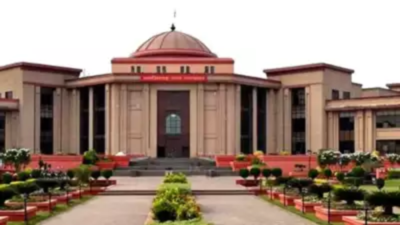- News
- City News
- raipur News
- Chhattisgarh HC highlights need for careful evaluation in juvenile bail cases, upholds denial in gruesome murder
Trending
Chhattisgarh HC highlights need for careful evaluation in juvenile bail cases, upholds denial in gruesome murder
The Chhattisgarh high court upheld the denial of bail for two juveniles accused of murder, emphasizing a careful evaluation of risks associated with their release as per the Juvenile Justice Act. The court cited the gravity of the crime and potential societal impact in its decision.
RAIPUR: The Chhattisgarh high court, in a recent order concerning a bail application by two juveniles accused in a murder case, made important observations regarding the approach of trial and appellate courts when dealing with bail pleas of children in conflict with the law.
Justice Arvind Kumar Verma, while dismissing the revision petition filed against the dismissal of bail by the Juvenile Justice Board (JJB) and the Additional Sessions Judge (FTC), Raipur, emphasised that while the approach towards granting bail to juveniles should be "liberal and pragmatic," courts must diligently consider the potential risks associated with their release.
The high court noted that both the JJB and the appellate court appeared to have "completely ignored to consider the statutory scheme of Section 12 of the Act of 2015," which mandates a careful evaluation of the social investigation report.
This report is crucial in assessing whether the release of a juvenile would expose them to moral, physical, or psychological danger or bring them into association with known criminals – the first two dis-entitling parameters under the Juvenile Justice (Care and Protection of Children) Act, 2015.
The court noted the "gravity of the charge, manner of its perpetration, circumstances in which the offence is alleged to have been committed," and its impact on society and the aggrieved family.
Justice Verma invoked the last dis-entitling clause under Section 12(1) of the Act, stating that the release of the juveniles in this specific case would "defeat the ends of justice."
The court reasoned that this clause empowers it to override the general principle of bail for juveniles when the totality of circumstances suggests that release would adversely impact law and order and societal equilibrium.
The court also pointed to the probationary officer's report, which indicated a high chance of the juveniles coming under the influence of other accused persons again.
Considering the nature of the alleged crime – the murder of their own family members through a contract killing – the high court opined that the juveniles could not be considered unaware of their actions and the consequences thereof.
The high court concluded that releasing the applicants on bail would indeed defeat the ends of justice, leading to the dismissal of their revision petition and upholding the decisions of the lower courts.
End of Article
FOLLOW US ON SOCIAL MEDIA










